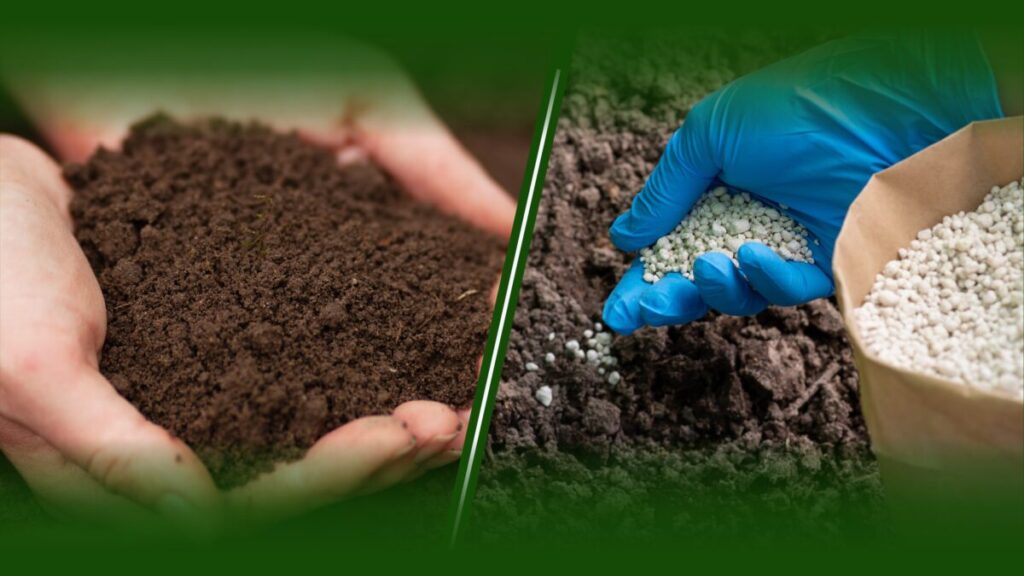Gardening is more than just a hobby; it’s a way of life. Whether you grow food for your family or simply enjoy the beauty of plants, choosing the right gardening method is crucial. One of the biggest debates among gardeners is organic vs. conventional gardening. Both have their pros and cons, but which one suits your needs best? This guide breaks it down in simple terms, helping even beginners understand the key differences.
What is Organic Gardening?
Organic gardening is all about working with nature rather than against it. This method avoids synthetic chemicals, pesticides, and fertilisers. Instead, it focuses on natural solutions like composting, crop rotation, and biological pest control.
For instance, instead of using chemical pesticides, organic gardeners introduce beneficial insects like ladybirds to eat harmful pests. Similarly, instead of synthetic fertilisers, they use compost or manure to enrich the soil naturally.
Benefits of Organic Gardening
✅ Healthier Soil – Organic methods improve soil structure, increasing its ability to hold water and nutrients.
✅ Safer for You and the Environment – No synthetic chemicals mean fewer toxins in your food and surroundings.
✅ Better-Tasting Produce – Many gardeners claim that organic fruits and vegetables have superior flavour.
Challenges of Organic Gardening
❌ Slower Growth – Plants may take longer to mature because they rely on natural nutrients.
❌ Pest Problems – Without synthetic pesticides, pests can sometimes be harder to control.
❌ Labour-Intensive – Organic gardening requires more manual effort, such as hand-weeding and composting.
What is Conventional Gardening?
Conventional gardening uses synthetic fertilisers, pesticides, and herbicides to enhance plant growth and protect crops from pests and diseases. This approach is often favoured by large-scale farmers because it offers faster results and higher yields.
For example, conventional gardeners might use a synthetic nitrogen fertiliser to boost plant growth quickly or apply pesticides to prevent insect damage. While effective, this method comes with certain trade-offs.
Benefits of Conventional Gardening
✅ Faster Plant Growth – Synthetic fertilisers provide immediate nutrients for plants.
✅ Pest and Weed Control – Chemical solutions help reduce damage from pests and weeds.
✅ Higher Yields – More efficient production means larger harvests, making it ideal for commercial farming.
Challenges of Conventional Gardening
❌ Soil Degradation – Overuse of synthetic chemicals can strip soil of nutrients over time.
❌ Environmental Impact – Chemical runoff can pollute water sources and harm beneficial insects like bees.
❌ Health Risks – Some pesticides and fertilisers contain chemicals that may pose health risks when consumed.
Key Differences Between Organic and Conventional Gardening
| Feature | Organic Gardening | Conventional Gardening |
|---|---|---|
| Fertilisers | Natural (compost, manure) | Synthetic (chemical fertilisers) |
| Pest Control | Natural predators, neem oil | Chemical pesticides |
| Soil Health | Improves soil over time | Can degrade soil quality |
| Growth Speed | Slower but steady | Faster growth |
| Environmental Impact | Eco-friendly | Potential pollution |
| Labour Required | More manual work | Less effort required |
Both methods have their advantages and drawbacks, making it important to choose based on your gardening goals.
Which Gardening Method is Right for You?
👉 If you prioritise health and sustainability, organic gardening is your best bet. It’s perfect for home gardeners who want chemical-free produce and healthier soil.
👉 If you want faster growth and larger yields, conventional gardening might be more suitable, especially if you’re working on a large scale or need quick results.
For many gardeners, a hybrid approach works best. You can use organic compost while occasionally supplementing with commercial fertilisers, or you can use natural pest control alongside mild pesticides only when necessary.
Final Thoughts
Have you tried organic or conventional gardening? Share your experiences in the comments!
If you have a green thumb or an interest in home gardening, don’t miss my book, Home Gardening in Diaspora: A Guide to Growing Organic Food in Your Home. This comprehensive guide is filled with practical tips and strategies to help you cultivate a thriving organic garden—no matter where you are.
Whether you’re a beginner or an experienced gardener, this book is an invaluable resource for growing your own fresh, organic ingredients and elevating your cooking to the next level.
Visit www.esteelicious.com today to explore delicious recipes and discover how Home Gardening in Diaspora can transform your gardening and culinary journey!
Want to see gardening tips in action? Subscribe to our YouTube channel at EsteeLicious for expert insights on home and container gardening—especially for those in the diaspora!

